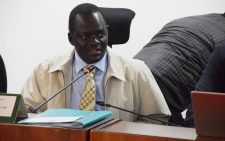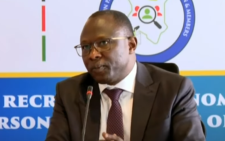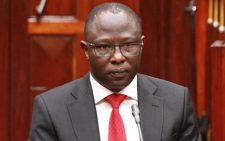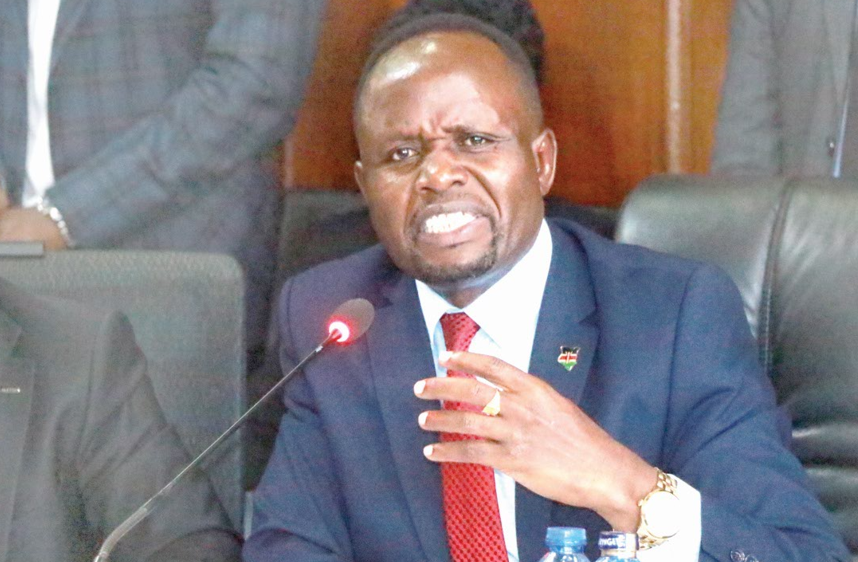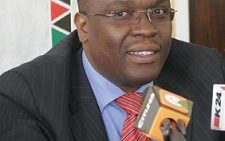Stalemate on IEBC a ticking time bomb ahead of 2027 general polls

With less than two years to the 2027 General Election, electoral experts and lawyers are now warning that the country could be hurtling towards a mega constitutional and political crisis as a result of the delay in reconstituting the Independent Electoral and Boundaries Commission (IEBC).
They warn that the long absence is fast becoming a ticking time bomb—one that could compromise the credibility of the next polls and destabilise the country’s hard-won democratic gains.
More than a year since the previous commissioners under the chairmanship of the late Wafula Chebukati, exited office following the chaotic aftermath of the 2022 elections, the electoral body has remained crippled, casting a shadow over the credibility and preparedness for the next national vote.
Efforts to put in place a new IEBC have faced several hurdles over the past two years, with the latest hiccup having been mid-this month when the High Court halted the vetting and approval of President William Ruto’s nominees by the National Assembly, pending the determination of a petition filed by two individuals.
Justice Lawrence Mugambi suspended the vetting following a petition filed by two citizens, Kelvin Omondi and Boniface Mwangi, challenging the legality and transparency of the selection process.
Omondi and Mwangi, through their lawyers Paul Muite and Ochieng’ Odinga, claimed that it was unconstitutional for President Ruto to forward names of the nominees without consulting the opposition.
They also claimed that some names on the IEBC interview list were included unconstitutionally and raised concerns about interference from the Executive.
In a new development, on Thursday, May 29, 2025, Justice Mugambi gave the National Assembly the green light to vet the nominees but gave conservatory orders prohibiting their gazettement, swearing-in, or assumption of office.
He ruled that the petition filed had raised serious constitutional questions surrounding their selection and nomination process.
Ruto had nominated Erastus Edung Ethekon as the next IEBC chairperson, while Anne Nderitu, Moses Mukwana, Mary Karen Sorobit, Hassan Noor, Francis Odhiambo, and Fahima Abdalla were nominated as commissioners.
Experts and politicians are now warning that failure to urgently reconstitute the electoral agency could have far-reaching ramifications on the 2027 General Election, including chaos as a result of electoral disputes.
The country’s electoral history is fraught with lessons on the dangers of flawed elections.
From the deadly violence of 2007-08 to the protracted legal battles in 2017, weak electoral management has repeatedly tested the country’s democratic resilience.
Observers warn that ignoring the IEBC crisis could set the stage for similar — if not worse — unrest.
According to Mulle Musau and Victor Nyongesa of the Elections Observation Group (ELOG), the formation of IEBC is quite behind schedule, with many key issues ranging from boundary delimitation, voter register verification, by-elections for parliamentary and ward seats, electoral reforms and general preparedness pending.
Nyongesa raises concerns over persistent errors and anomalies in the registration, compilation, updating, auditing, cleaning, and certification of the voter roll.
In light of the integrity concerns, which ELOG deems valid, the group now wants the new IEBC to be in place to immediately conduct a voter list assessment to address the issues, including the creation of a new voter register.
On his part, Mulle proposes a process that incorporates robust public participation and stakeholder engagement to ensure transparency and inclusivity.
Mulle cites inconsistencies that it discovered in its audits, adding that their efforts to review deceased voters in the 2017 poll were frustrated by the lack of an official list from the Registrar of Births and Deaths.
“For instance, in 2012, we found the register to have errors on 143,530 records, while in 2017, the audit revealed 169,646 duplicate records. It is important to indicate that all these errors were found on the register after the elections had been conducted, and further after a professional audit (2017) and cleaning done by the commission before the respective elections,” he says.
Mulle says the anticipated IEBC would have to move fast to liaise with Parliament to agree on whether sections of the law would have to be amended to allow the 2027 polls to proceed without boundary delimitation, or it would have to rush through the process within the short period left.
Boundary reviews
IEBC Chief Executive Officer Marjan Hussein Marjan says the commission is waiting for an advisory by the Supreme Court on whether the deadline for the boundary review process could be extended, and whether the delimitation exercise can be conducted without commissioners in place.
Article 89(2) of the Constitution provides that the IEBC shall review names and boundaries of constituencies at intervals of not less than eight years, and not more than 12 years.
The last review was carried out in March 2012, and the next one was due by March 2024, but lapsed due to the absence of IEBC.
Mulle also says time is running out for the electoral agency to embark on electoral reforms that are usually undertaken after every election.
Since 2007, Mulle says, the country has been undertaking electoral reforms spearheaded by the electoral body to correct mistakes and weaknesses experienced in the preceding national polls.
“The situation is already toxic, and the closer we get to the General Election, the more toxic the situation will become. Looking at the present situation, you don’t expect politicians to agree on any proposed reforms. The suspicions between opposing camps are already high,” he added.
Machakos Deputy Governor Francis Mwangangi says the Attorney General had last year warned that failure to conduct the delimitation exercise could lead to legal challenges, and compromise political stability, social cohesion and electoral integrity.
Mwangangi warns that boundary reviews — a constitutional requirement every 8 to 12 years — must be completed well before the next election.
National dialogue
“Delimitation is not just a technical exercise; it is a political flashpoint,” Mwangangi warns.
“Delays in reconstituting the IEBC mean delays in this process, with potential legal and political fallout,” he says.
According to Mwangangi, election planning is a multi-year endeavour in which IEBC undertakes extensive logistical tasks — including updating the voter register, delimiting electoral boundaries, procuring electoral materials, and overseeing political party primaries.
With each passing month, the window to execute these tasks is narrowing dangerously, he warns.
He warns that unless urgent action is taken, the country risks plunging into a pre-election crisis reminiscent of the chaotic build-up to the 2007 elections, which led to widespread violence.
Mwangangi proposes a national dialogue to break the deadlock and set a firm timeline for reconstituting the IEBC.
“It seems that Kenyans hardly learn, because previous delays in constituting the electoral agency have always led to violence. Justice Krigler warned us and gave us the timelines in which we should have IEBC in place, at least two years before the national polls, but we still didn’t take note,” Mwangangi stated.
Johann Kriegler, the retired South African judge, chaired the Independent Review Commission (IREC)—popularly known as the Kriegler Commission—which was formed in 2008 to investigate Kenya’s disputed 2007 presidential election.
After the 2007–2008 crisis, Kriegler’s commission audited Kenya’s electoral system, exposing critical flaws in the Electoral Commission of Kenya.
Kriegler’s pivotal advice was that Kenya needed a completely overhauled electoral framework to prevent future violence.
With regard to the looming crisis at IEBC, former Attorney General Justin Muturi, who also served as National Assembly Speaker and Public Service Cabinet Secretary, says that during his tenure in office, he had issued several advisory opinions on the lurking dangers of failure to have reconstituted IEBC early enough.
“A credible election begins with a credible commission. Delay is no longer just dangerous — it is reckless,” Muturi stated.
“The current paralysis at the commission risks eroding the legitimacy of the 2027 elections before they even begin. Without an impartial and fully constituted IEBC, the entire electoral cycle is compromised,” he added.
